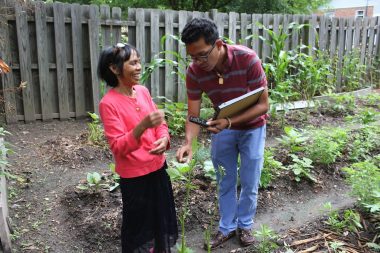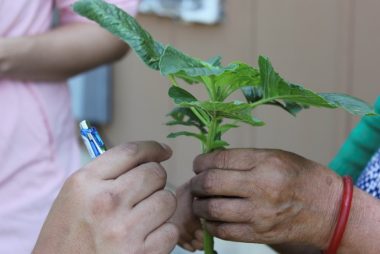The poster summarized three years of ethnobotanical work by Bush, assistant professor of biology and research fellow at the Center for New North Carolinians at the University of North Carolina at Greensboro.
Catherine Bush, assistant professor of biology and research fellow at the Center for New North Carolinians at the University of North Carolina at Greensboro, has co-authored research presented at the 2019 North American Refugee Health Conference.

Vung Ksor, Immigrant Health Access Project (IHAP) Program Coordinator – Refugee Community at the Center for New North Carolinians, UNCG, and Bush traveled to the 2019 North American Refugee Health Conference from June 13-16 in Toronto, Canada. The poster was entitled "An Analysis of the Ethnobotanical Knowledge of Indigenous Tribes of Vietnam (the Montagnards) Now Living in Greensboro, NC, USA".
 The Montagnards fought with the Americans in the Vietnam War and sought refuge in the United States in the aftermath. Greensboro is home to the largest population of Montagnard community members outside of Southeast Asia.
The Montagnards fought with the Americans in the Vietnam War and sought refuge in the United States in the aftermath. Greensboro is home to the largest population of Montagnard community members outside of Southeast Asia.
This conference is intended for health professionals or advocates in North America that work with refugees from all corners of the globe. The presented research included plant information, both vouchered and unvouchered, from 33 participants from four distinct tribes from Vietnam.
Plant knowledge is vast and diverse in the older Montagnard generations with the study showing that the plant information documented included 103 unique species belonging to 50 different plant families, including flowering plants, gymnosperms and even ferns (93 percent of the species are eaten; 43 percent of the species are being used medicinally). At least 44 different conditions are treated by the medicinal plants documented in this study, including malaria/fever, chickenpox, diabetes, hypertension, snake bites, childbirth/postpartum care, urinary tract and ear infections, wounds, digestive issues, burns, rashes, vision impairments, cold/flu symptoms and pain.


